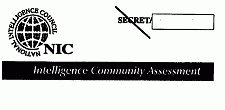When Army Chief of Staff, General Eric Shinseki appeared before the Senate Armed Services Committee on February 25, 2003 to discuss preparations for a possible invasion of Iraq, he was asked by Senator Carl Levin (D-MI) to estimate the size of a successful occupation force after victory.
"Something on the order of several hundred thousand soldiers are probably a figure that would be required," said Shinseki, a highly-decorated officer with almost four decades of service, including extensive combat duty in Vietnam. "We're talking about a post-hostilities control over a piece of geography that's fairly significant, with the kinds of ethnic tensions that could lead to other problems."
"It takes a significant ground force presence to maintain a safe and secure environment, to ensure that people are fed, that water is disturbed, all the normal responsibilities that go along with administering a situation like this."
Shinseki was immediately jumped by Secretary of Defense Donald Rumsfeld and Deputy Defense Secretary Paul Wolfowitz. Rumsfeld said publicly that Shinseki was "far off the mark" in his prediction, while Wolfowitz called his views "wildly off the mark" and said, "I am reasonably certain that they will greet us as liberators, and that will help us to keep requirements down."
The Village Voice even
reported that a "senior administration official" said that Shinseki's estimate was "bullshit from a Clintonite enamored of using the army for peacekeeping and not winning wars".
General Shinseki "retired" shortly thereafter, in June 2003, and it is widely speculated that he was forced out for contradicting Bush's take on what would be required by the Army in Iraq. Shinseki has confirmed only that he was indeed forced into retirement, while withholding comment about any specifics.
Which makes the report issued by the Senate Intelligence Committee before the Memorial Day holiday even more interesting because
Prewar Intelligence Assessments About Postwar Iraq (PDF) shows not only that Shinseki was right about troop levels, but also -- as if more evidence is needed -- that the Bush administration ignored critical pre-war intelligence in their rush to invade Iraq.
The report, which the previous Republican Congress successfully kept from being produced for two years, shows that months before the Iraq invasion, the White House knew from U.S. intelligence agencies that a civil war would likely erupt after Saddam's ouster, that al-Qaeda would quickly move to exploit the American occupation and that Osama bin Laden's organization would actually
gain strength globally due to Bush's action.
Please go to
BobGeiger.com to read the rest of this story.





